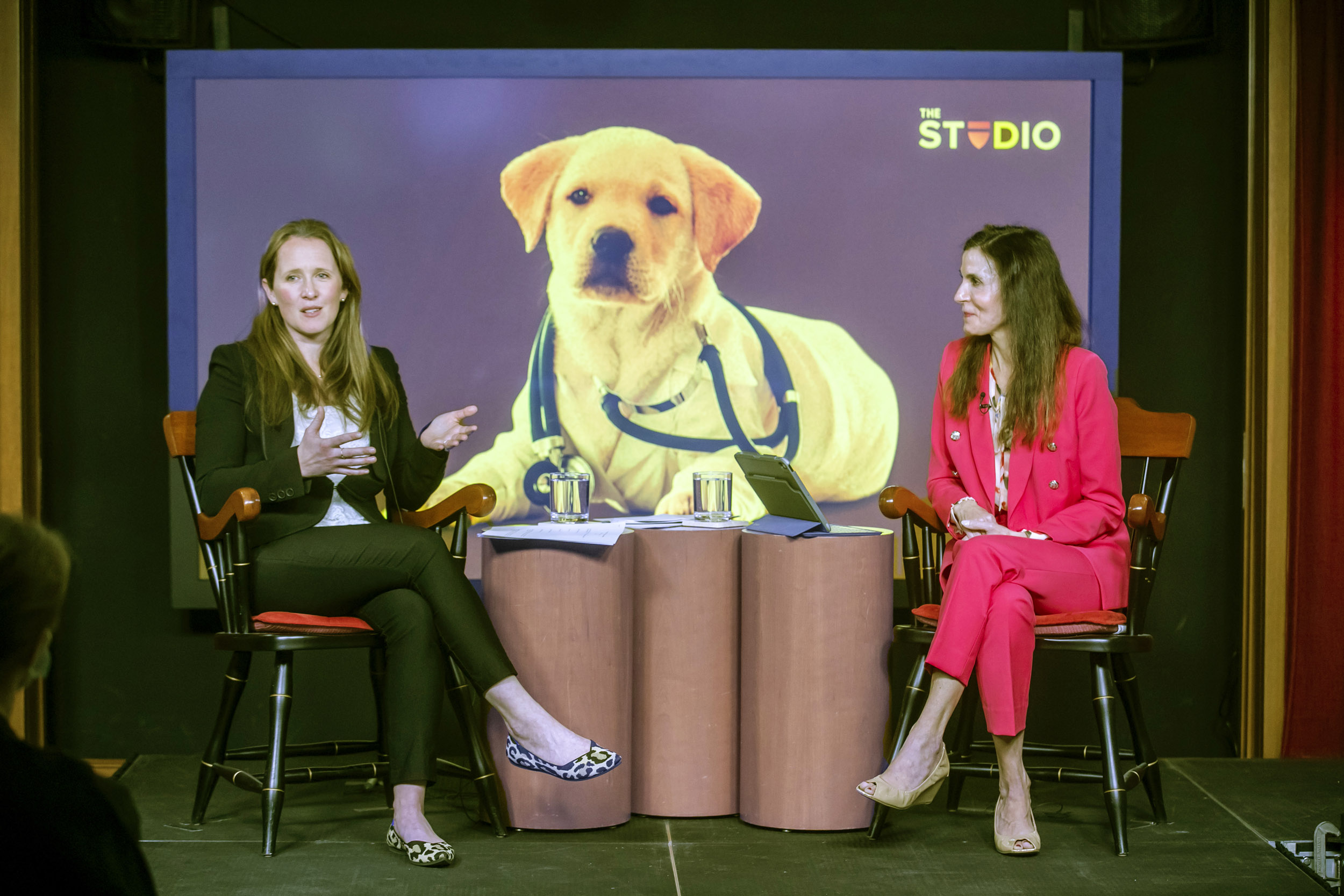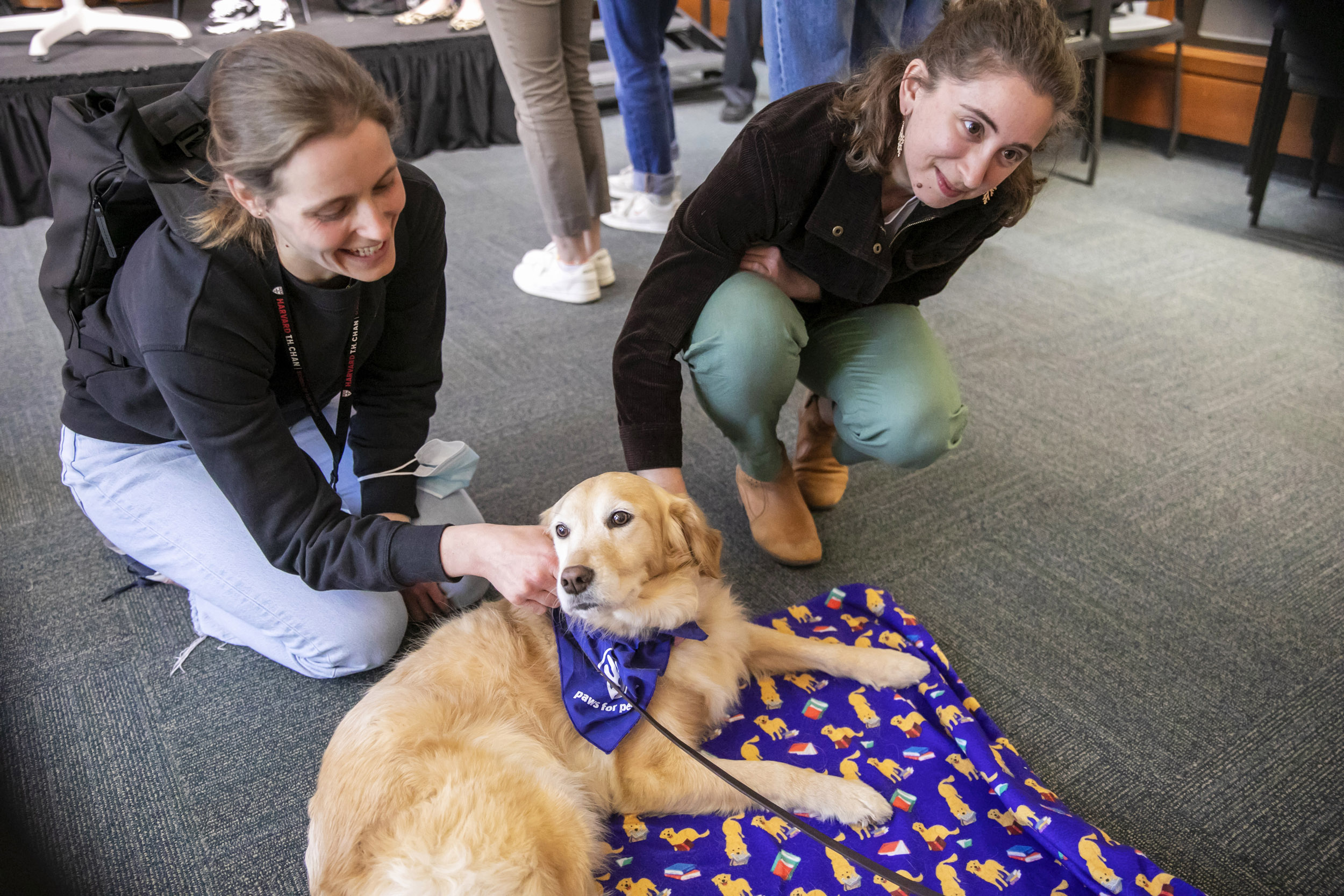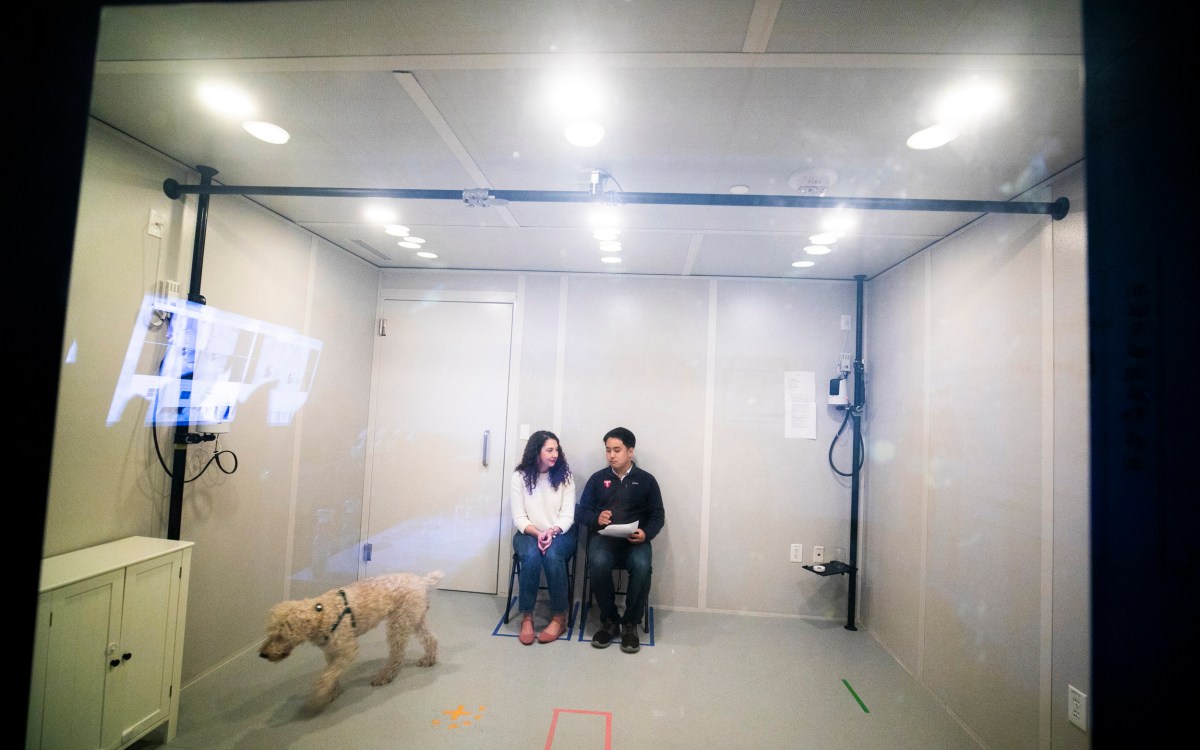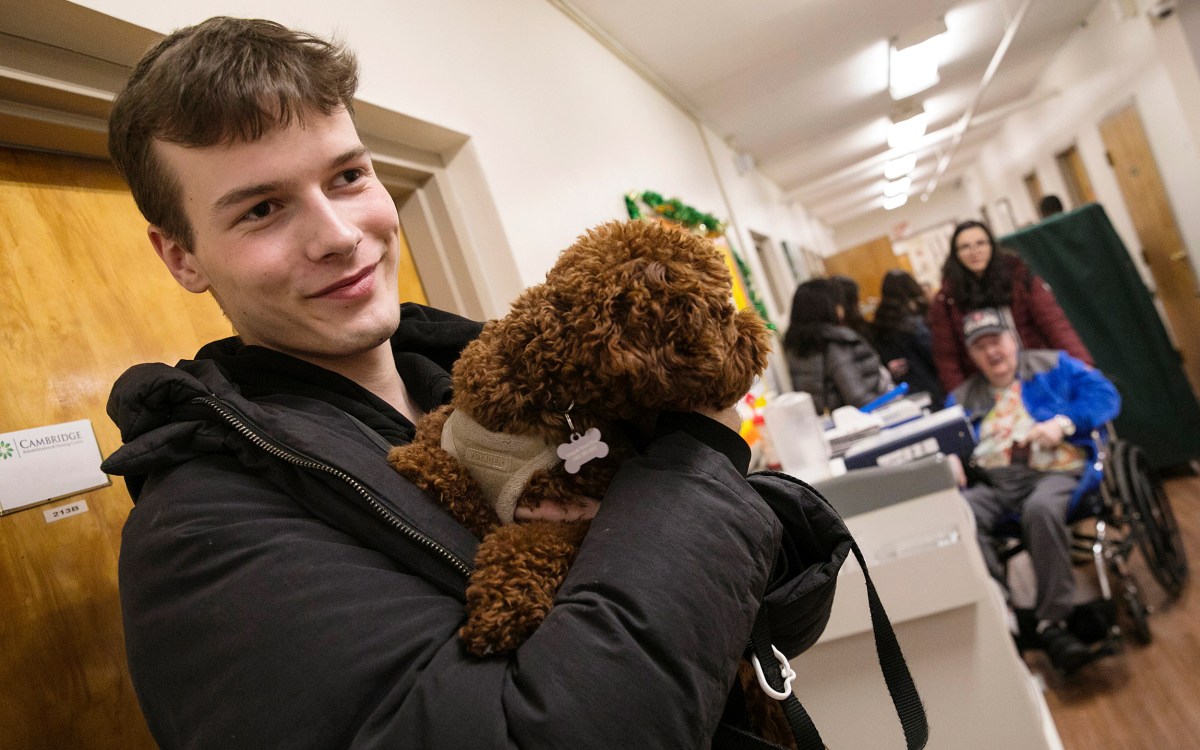
“Pets can provide a really powerful sense of purpose,” said Megan Mueller (left), who with Elizabeth Frates examined the barriers to pet ownership the disadvantaged often face.
Photos by Jon Chase/Harvard Staff Photographer
Take it from the experts, a pet can change your life
Now we just need to remove barriers to the benefits animals provide, they say
Some people should not have pets. They’re expensive and can make you sneeze. They require time, attention, and stability.
If you have allergies, don’t make yourself suffer. If you travel frequently, think twice. If you simply can’t warm to the idea of an animal companion, then by all means, forget the pet.
Otherwise, there are lots of good reasons to welcome Fido into your home, according to Elizabeth Frates, a healthy lifestyle specialist, and Megan Mueller, an expert in the psychology of human-animal relationships.
Frates, an assistant clinical professor at Harvard Medical School, and Mueller, an associate professor at Tufts University’s Cummings School of Veterinary Medicine, point out that a deep body of research demonstrates the health benefits of dogs, cats, guinea pigs, and other pets. Animals ease loneliness and boost oxytocin — the love hormone. They get us moving — even when we don’t want to — and anchor us in the present. They are conversation-starters, drawing people together and providing that initial spark of social connection.
Unfortunately, not everyone has access to those benefits. Food and grooming costs, limited access to vet care, and a lack of green space are among the obstacles to pet ownership for many people.
“It’s important to understand that a lot of the institutionalized barriers that affect all kinds of human health also impact companion animals living in people’s homes,” Mueller said. “There’s a wide range of things that can either prevent people from having pets who want to have pets, or that make it more difficult or more stressful to have pets.”
On Monday, Frates and Mueller discussed efforts to change that dynamic in a conversation sponsored by the Harvard Chan School.
Among the initiatives they highlighted was Project Street Vet, a California nonprofit that provides free veterinary services to the homeless or those at risk of becoming homeless. In a video shown at the event, the project’s founder, Kwane Stewart, noted that many homeless people suffer from PTSD, a condition that companion animals help ease. Also, the responsibility that comes with caring for a pet can fuel motivation to avoid substance abuse and to seek a path to a house or an apartment, he said.

Mueller agreed with Stewart’s point before expanding on it.
“Pets can provide a really powerful sense of purpose,” she said. “There’s the routine of caring for a pet and the responsibility of caring for another living creature that can really provide this driving force for getting out of bed in the morning. That applies to all people, and we really have to think broadly about how to support people being able to successfully have companion animals no matter what the circumstance.”
Frates — whose fear of dogs was cured by a golden doodle her husband bought for their kids — referenced the 2019 finding that dog ownership is associated with a 24 percent reduction in all-cause mortality. Having a dog has been shown to lower blood pressure and cholesterol levels, she said, and petting sessions release oxytocin in both the owner and the animal. As if all that weren’t enough, dogs are good for your social life, helping break the ice with strangers.
Mueller and Frates shared several ideas for removing barriers to pet ownership. One possibility: include pet foods in food pantries. They also suggested co-locating veterinary clinics with human healthcare centers, allowing for one-stop appointments. Finally, they highlighted the success of pet therapy programs, particularly on college campuses as more students seek mental health services.
“We’re really seeing that become a way to support students, especially when they’re missing their own pets at home,” Mueller said.










